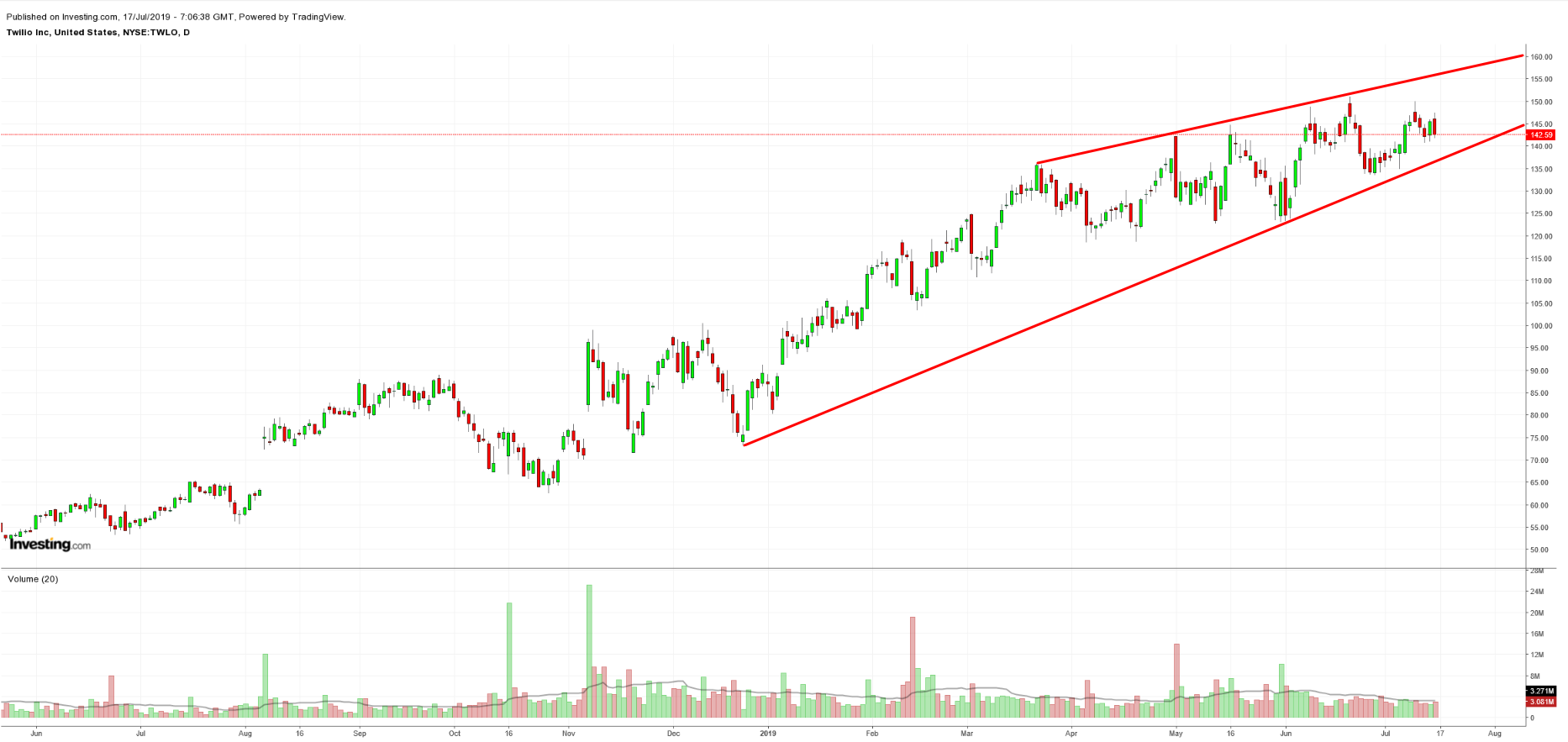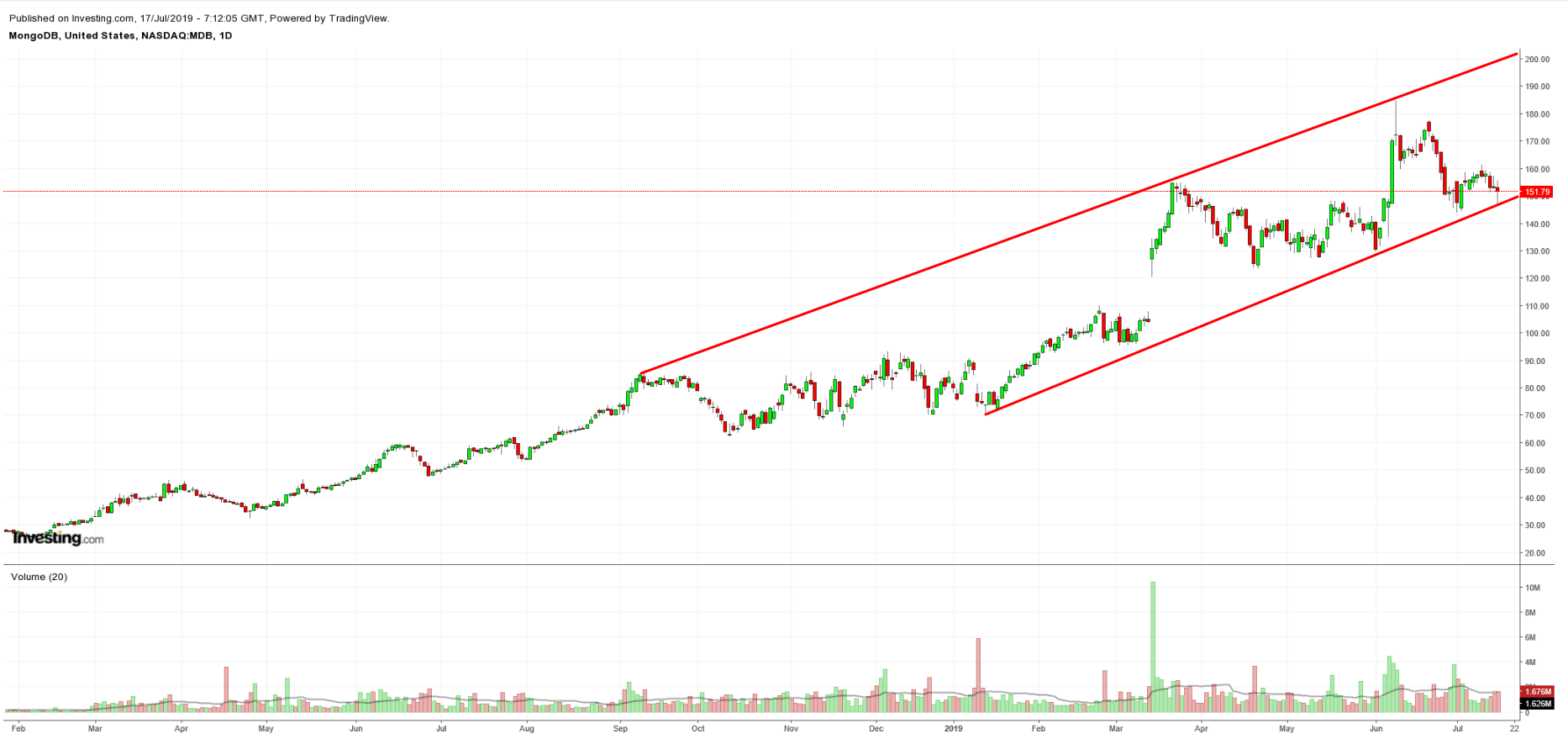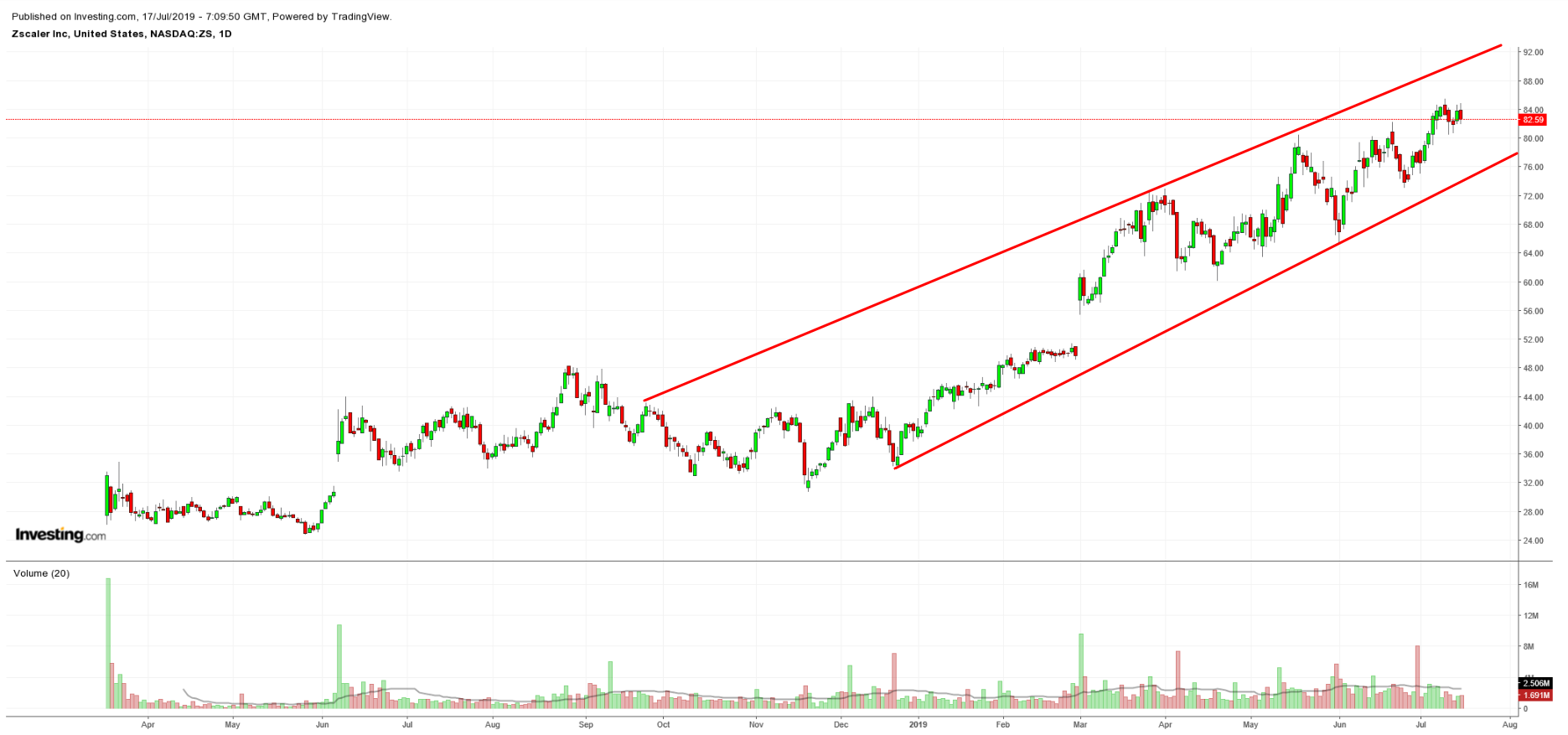The U.S. tech sector earnings season will shift into high gear in the coming weeks. While most of the focus will be on names like Facebook, Apple, Amazon, Netflix, Google and Microsoft, investors would be wise to turn their attention to other high-flying companies poised to provide strong long-term growth.
Here are three tech sector stocks enjoying accelerating earnings and revenue growth thanks to surging demand for their innovative products. Each is well worth considering ahead of their quarterly reports.
1. Twilio Revenue Forecast: +102% YoY
Shares of Twilio (NYSE:TWLO), cloud-based communications platform, are up 60% since January 1, as strong demand for its in-app communication solutions service drives gains. The San Francisco-based company has become the leading name in the communication platform-as-a-service (CPaaS) sector and counts big names like Twitter (NYSE:TWTR), Coca-Cola (NYSE:KO) and Lyft (NASDAQ:LYFT) as customers.
The stock closed at $143.09 on Tuesday, giving it a market cap of $18 billion. Shares reached an all-time high of $151.00 on June 20.

It’s easy to see why investors are excited: revenue growth has accelerated for five consecutive quarters, climbing around 80% year-over-year (YoY) in the first three months of 2019. Even more impressive, earnings per share (EPS) were more than triple analyst expectations in two of the past three quarters.
Twilio is projected to report second-quarter results on or around August 7. Consensus estimates call for the cloud communications platform provider to post earnings of $0.02 per share, while revenue is forecast to rise a whopping 102% from the same quarter a year earlier to $263.72 million.
More importantly, investors will keep an eye on Twilio's update regarding its active customer accounts (ACAs) to see if it can maintain its torrid pace of expansion. The company announced in its Q1 earnings report that it had 154,797 ACAs, up 186% from the same quarter a year earlier.
2. MongoDB Revenue Forecast: +59.6% YoY
MongoDB (NASDAQ:MDB), which made its trading debut October 2017, is the most-widely used NoSQL solution open-source database software platform.
Its shares, which reached an all-time high of $184.78 on June 10, are up 81.4% year-to-date. The stock closed at $151.79 as of last night, giving it a market cap of $8.35 billion.

The company has regularly beat Wall Street estimates with sales growing by at least 50% YoY during every quarter since its IPO, due to mounting demand for its cloud-based open-source database offering.
MongoDB is expected to report a loss of $0.28 per share in the second quarter on revenue of $91.77 million when it releases results on September 5. That would mark a 59.6% increase in YoY revenue from the same quarter last year when it posted a loss of $0.41 per share on revenue of $57.49 million.
Revenue is growing thanks to robust subscription demand for its Atlas cloud-based database, which saw sales jump over 400%. The offering now accounts for 34% of company-wide sales.
3. Zscaler Revenue Forecast: +47.1% YoY
Zscaler (NASDAQ:ZS)—the world’s largest provider of cloud-based web security gateways—provides automated threat forensics and dynamic malware protection against advanced cyber dangers.
Shares have more doubled so far in 2019, soaring by 110%, as investors have become increasingly bullish on the cloud-based cybersecurity specialist. The stock closed at $82.59 last night, not far from its all-time high of $85.50 reached on July 10, giving it a market cap of $10.38 billion.

Zscaler next reports earnings on September 4. Consensus calls for EPS of $0.02 for its fiscal fourth quarter, which would indicate a YoY EPS growth rate of 200%. Revenue is expected to surge 47.1% from the same period a year earlier to $82.63 million.
Investors will be keen to see whether the San Jose-based company can maintain robust expansion from its Private Access service, which lets organizations deliver secure access to internally managed applications hosted in enterprise data centers or the public cloud. The product accounts for about 10% of Zscaler's new customer contracts.
